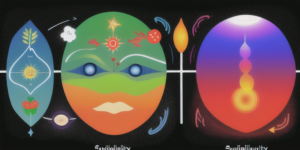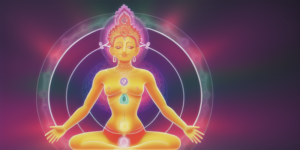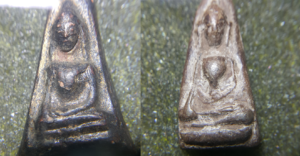The law of karma posits that actions have consequences, and these consequences are not just physical but also spiritual in nature. The phrase “what you hate, becomes you” can be interpreted as a karmic consequence, wherein the energy and emotions that one invests in hatred can eventually consume and transform the individual.
Now, let’s explore the connection between the human mind, its conditioning, and the law of karma.
The human mind is incredibly powerful. Our thoughts, emotions, and actions are interwoven in complex ways. When we develop an intense emotion like hatred, it can be a result of conditioning from our past experiences or teachings from authoritative figures in our lives. These negative emotions can create an internal environment that is conducive to a karmic reaction. According to the law of karma, the negative energy that is generated by hatred can boomerang back on the individual.
One reason why “what you hate, becomes you” is that by constantly focusing on a particular emotion or trait that we despise, we unintentionally incorporate elements of it into our psyche. The more we engage with hate, the more it begins to define our thoughts, actions, and even our identity.
Imagine a person who, above all else, prizes humility. They see arrogance everywhere in society and develop a strong aversion to it. They take on the mission of pointing out arrogance whenever they see it, in an attempt to promote humility.
Their focus on arrogance becomes an obsession. They start to spend more time studying arrogance, understanding its nuances, and trying to identify it in others. Their thoughts become dominated by this vice, and they constantly critique and comment on the perceived arrogance of those around them.
In time, their focus on arrogance starts to overshadow their initial love for humility. They become self-righteous and, ironically, arrogant in their crusade against arrogance. They start to lecture others, seeing themselves as superior for their ability to detect and denounce arrogance. They may even start to dismiss or look down on those they perceive as arrogant, displaying the very trait they initially detested.
So, in a sense, their intense hate for arrogance leads them to become more like the arrogant individuals they wanted to correct. The virtue they aimed to promote – humility – gets lost in the process, overshadowed by their obsession with arrogance.
Furthermore, neuroscience has shown that neural pathways in the brain strengthen with repeated use. As a person focuses on hatred, the neural connections associated with this emotion become stronger, and it becomes a default way of responding to situations. This aligns with the saying that “neurons that fire together, wire together.”
From a spiritual perspective, engaging in hatred disturbs inner peace and balance. This can be viewed as a karmic consequence, where the disturbance of one’s inner harmony is the result of the negative energy that they have sent out into the universe.
Let’s picture the mind like this huge warehouse. Imagine that this warehouse has shelves and shelves of stuff that we collect throughout our lives. These shelves are loaded with thoughts, experiences, feelings, you name it. Now, the stuff that you focus on the most or feel super strongly about, it’s like you’re putting it on the express shelf – the one you see first thing when you walk in.
So, when you really, really dislike something, like when it gets under your skin and you can’t stop thinking about how much you hate it, guess where it’s going? Yep, right on that express shelf.
Let’s throw in a super relatable example. You know when someone is constantly negative? Like, they could win the lottery and still find something to complain about. It’s exhausting. You might find yourself thinking, “I can’t stand negativity.” You try to be a positive person, but this negativity stuff is just too much. You talk about how much you hate it, you think about how much you don’t want to be around it, and all of a sudden, what’s happening? You’re on a negativity train, my friend. You might even catch yourself being negative about other things because that negativity has taken prime real estate in your mind.
Now, let’s not just stop at negativity. Think about that one coworker who is always gossiping. The one who can’t wait to spill the tea on everyone and their mother. It’s annoying, and you just hate that there’s always some drama in the office because of them. You might even start venting to your friends or partner about this person. Before you know it, you’re bringing up examples, discussing other people’s business, and – boom – you’re knee-deep in gossip territory.
Alright, I guess it’s time to get a little deeper. Let’s talk about the human mind and why this whole “what you hate, becomes you” thing happens. So we all have different parts of ourselves. There’s the chill, rational side that thinks things through, and then there’s the side that’s all about those emotions. This emotional side isn’t always the most logical. It’s kind of like having a really passionate friend who means well but doesn’t always think things through.
When you feel super strong about something, this emotional side is taking the wheel. It’s steering where your thoughts and feelings are headed. It doesn’t really care if these thoughts are positive or negative; it just knows you feel strongly. That’s why, when you hate something, it’s like you’re giving that thing a VIP pass into your brain. Your mind doesn’t really get that you don’t want to become this thing; it just knows that it’s important.
Here are some relatable examples:
- Bullying and Insecurity: A person might have been a victim of bullying during their childhood, leading them to develop a deep hatred for bullies. As they grow up, to compensate for the powerlessness they felt as a child, they may become overly assertive or aggressive, unknowingly turning into a bully themselves. In this case, their hatred for bullying becomes a part of their defense mechanism, which ultimately leads them to exhibit the same behavior they despised.
- Workplace Competition and Backstabbing: An employee might despise colleagues who engage in backstabbing or underhanded tactics for career advancement. But as they face intense competition, they may feel the only way to succeed is to engage in similar tactics. Their hatred for such behavior might make them hyper-aware of it, and they may start rationalizing using the same tactics as a means for survival in a cut-throat environment.
- Intolerance for Different Opinions: A person might strongly hate intolerance and close-mindedness in others, especially regarding social or political opinions. However, they might become so passionate about promoting openness and acceptance that they refuse to entertain any views that differ from their own, ironically becoming intolerant themselves.
- Hatred Towards Discrimination Leading to Reverse Discrimination: An individual who despises racial or social discrimination might work towards equality and fairness. However, in some instances, they can become so focused on their cause that they may start to generalise and discriminate against groups they perceive as having been historically privileged or as oppressors, thereby engaging in the very discrimination they hated.
- Hating Dishonesty and Becoming Manipulative: A person who hates dishonesty might be keen on always figuring out the truth. In their pursuit, they might start manipulating situations or conversations to get people to reveal their dishonesty. While their intention might be to expose lies, they may not realize that in the process, they are engaging in manipulative tactics which are a form of dishonesty.
So, is all this a doomed cycle of becoming a walking, talking collection of stuff we can’t stand? Not really. Here’s where the rational side of your brain can jump in to save the day. When you catch yourself hating something with the passion of a thousand suns, take a step back. Ask yourself, “Why does this bug me so much?” Maybe even jot down your thoughts. Understanding why you feel so strongly can sometimes take the wind out of the sails of that passionate, not-so-logical side of your brain.
You might be sitting there thinking, “Nah, these analogies don’t apply to me.” But hold up a second, that’s probably what most of us would like to believe. The truth is, unless you’re like a Zen master who’s ultra-aware of every flicker of emotion, there’s a good chance that you could slip up. Just one second of letting your guard down, and bam, you might fall into the snare your mind set up without you even knowing. Sometimes, it’s just because life hasn’t thrown you that curveball yet – you know, that one situation that suddenly makes you get why someone acts the way they do. In a deeper, kind of mind-blowing way, the world is like a giant mirror, reflecting back at us. It’s showing us the good, the bad, and the ugly, and sometimes it might just be hinting that what we hate has something to do with a lesson we need to learn about ourselves.
And, you know what, sometimes it’s good to switch focus. Instead of thinking about what you hate, think about what you love. You know, like how people say you catch more flies with honey than vinegar. Pour your energy into what makes you feel good, what makes you happy, or what you want to become. It’s not about ignoring the bad stuff, but it’s about not letting it set up camp in your brain.
This whole “what you hate, becomes you” deal is like a mind ninja, sneaky but manageable. It’s about balance and understanding that where you put your mental energy matters. You’ve got the power to decide what goes on those express shelves in your mind warehouse.
Just remember, it’s cool to have strong feelings, but don’t let them drag you down a rabbit hole. You are the boss of your brain, my friend. Keep that in mind the next time something gets your goat.




